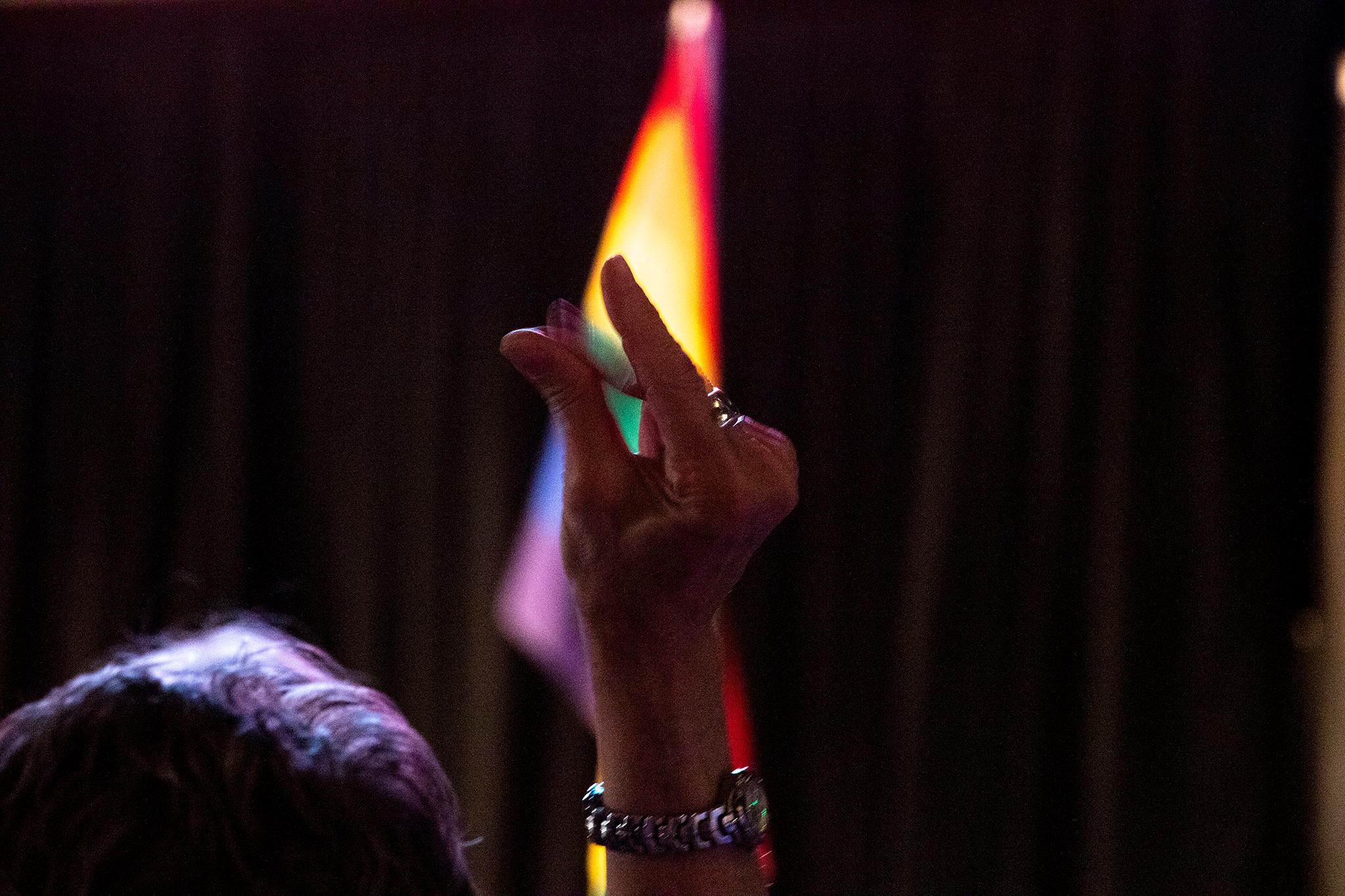Five candidates aiming to become Denver's next mayor attempted to differentiate themselves on topics important to the city's lesbian, gay, bisexual, transgender and queer residents during a debate last week at EXDO Events Center.
Inevitably, questions about hate crimes, pay disparities and abuse of LGBTQ students generated answers relating to the well-trodden problems of housing and homelessness, the latter of which is common among LGBTQ youth because of family estrangement, experts say. But candidates covered some new ground as well.
Candidate Kalyn Rose Heffernan, who identifies as queer, has been snubbed by other forums because of a small campaign fund. But the audience heard her loud and clear at this event.
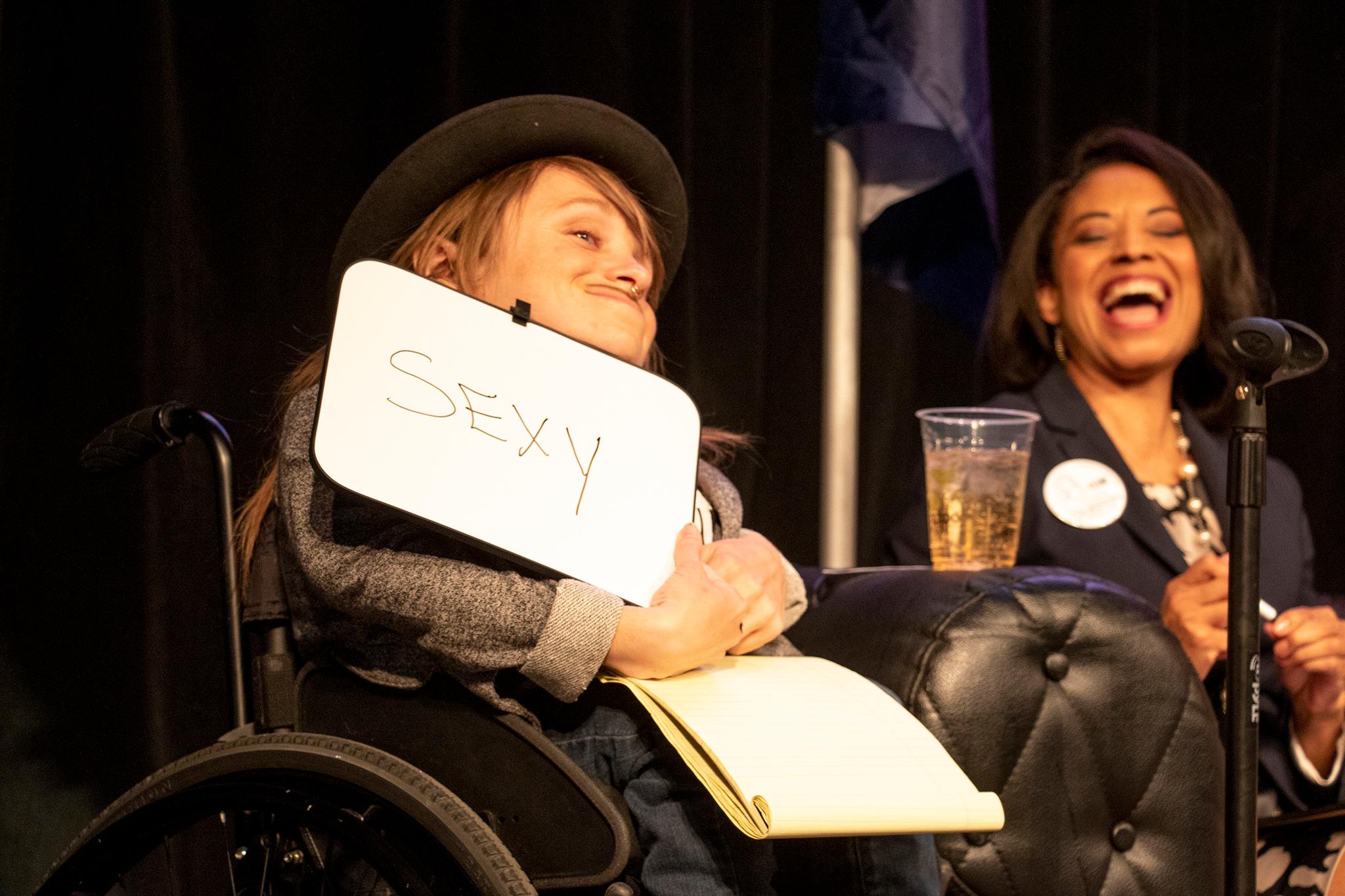
Heffernan said her administration would "decriminalize homelessness, because it does affect our queer youth far more than any other community, especially when it coincides with other marginalized communities like people of color, like people with disabilities, etcetera."
She would create more centralized safe places for LGBTQ kids, including recreation centers that target young Denverites who are abused at home and bullied at school or online. Heffernan would add mental health workers at schools -- and take police out of them, she said.
As a teacher at Youth on Record, the educator has a front row seat.
"My class is sometimes the only place where students can use their preferred pronouns," Heffernan said. "Queer youth that are experiencing homelessness, this isn't just like a policy or a number game for me. This is like my everyday life."
Jamie Giellis said she would focus reforms on helping LGBTQ kids, calling Denver's ban on conversion therapy "a great first step."
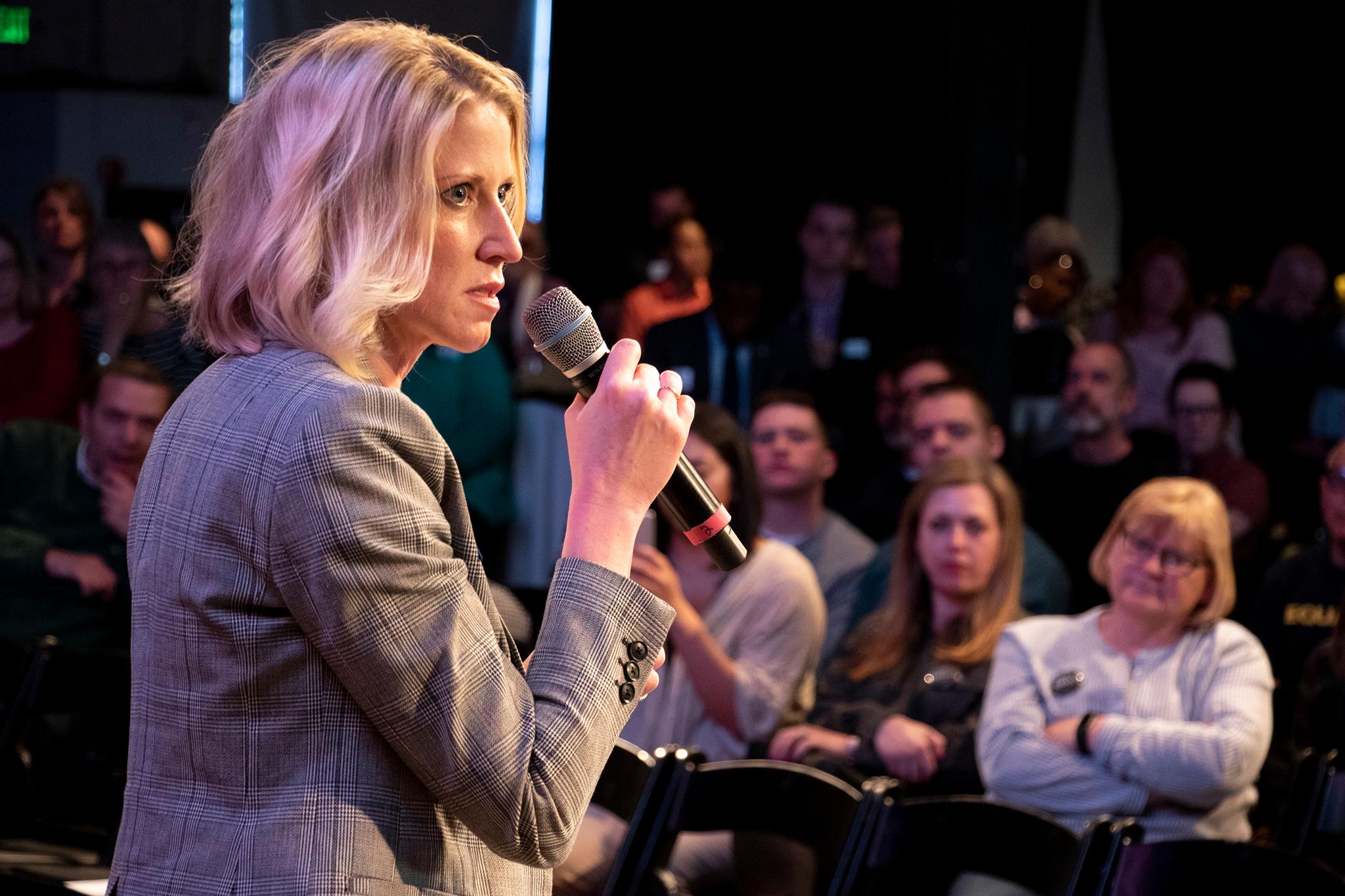
The next step, she said, is to ensure the $45 million boost to mental health passed by Denver taxpayers goes towards helping LGBTQ youth so they don't fall through the cracks.
"Ensuring that they get the support to be who they are is an important thing to me," she said.
Also: Giellis said she would try to oust Chic-fil-A Filet from Denver's taxpayer-owned airport because its foundation funds anti-LGBTQ groups.
Mayor Michael Hancock, as incumbents do, relayed what he's done as mayor over eight years. His administration sponsored a bill passed by the Denver City Council that extends jail sentences if people are convicted of a hate crime.
The mayor appointed a Denver Police Department lieutenant as an official liaison to the LGBTQ community, and said at the forum that police officers are beginning to receive implicit bias training to help them recognize unconscious discrimination. Hancock also plugged Denver's perfect score on The Human Rights Campaign's Municipal Equality Index, which rates a city's laws and enforcement to curb discrimination.
"My administration has and will continue to always stand up and protect those people who are in communities that are targets of intimidation and threats," Hancock said. "We simply won't allow it. We're gonna use every extent of the law to prosecute and hold them accountable."
The mayor also spoke of his brother, Robert, who died of AIDS in 1996. Some of his dying words to the mayor, he said, were, "Never stop fighting for the LGBTQ community."
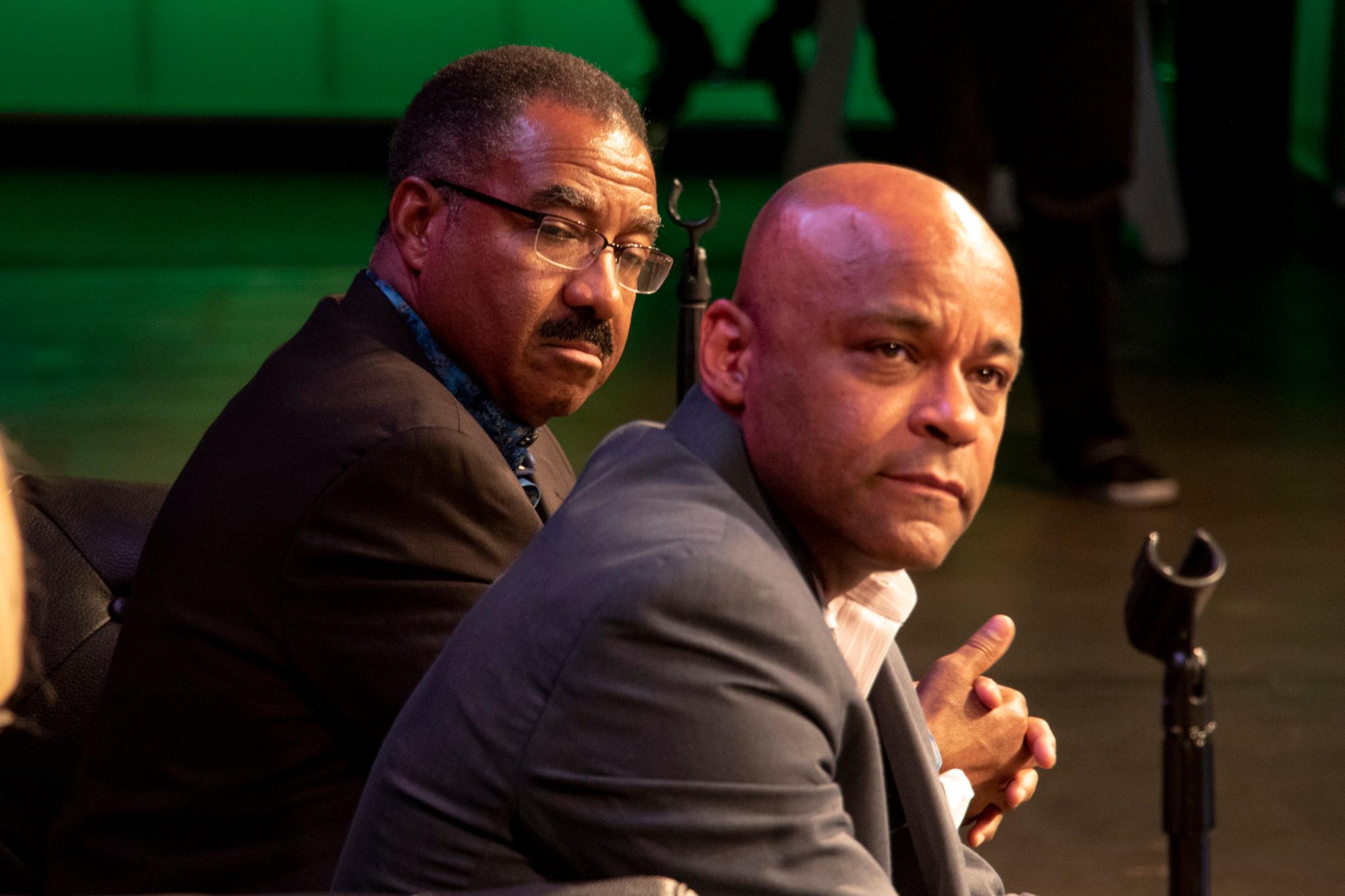
Penfield Tate invoked his family as well. As mayor of Boulder in the 1970s, Tate's father of the same name advocated for policies to protect people from discrimination based on sexual orientation. Tate's family received hate mail and death threats as a result. A recall failed, but his political career ended.
Tate tried to carry hate crime legislation over the finish line while working as a legislator at the Capitol every year for seven years, he said. He never passed a bill, though later General Assemblies did.
Those experiences shaped Tate's responses, which carried a theme of leadership -- and a knock to Hancock's history of sexual harassment against a subordinate.
"You can do all the training in the world but if you don't set the right leadership tone at the top of the mayor's office, it doesn't matter, because nobody's gonna take you seriously," Tate said. "You're not gonna get a change if you've got police officers complaining about receiving sexual harassing texts from the man who runs the city."
Hancock responded: "I think about that mistake, and I'm a better man for it. But I stayed with my family and my family stayed with me."
Lisa Calderón said her lens would inherently soften "the hyper-masculine environment of the Denver Police Department."
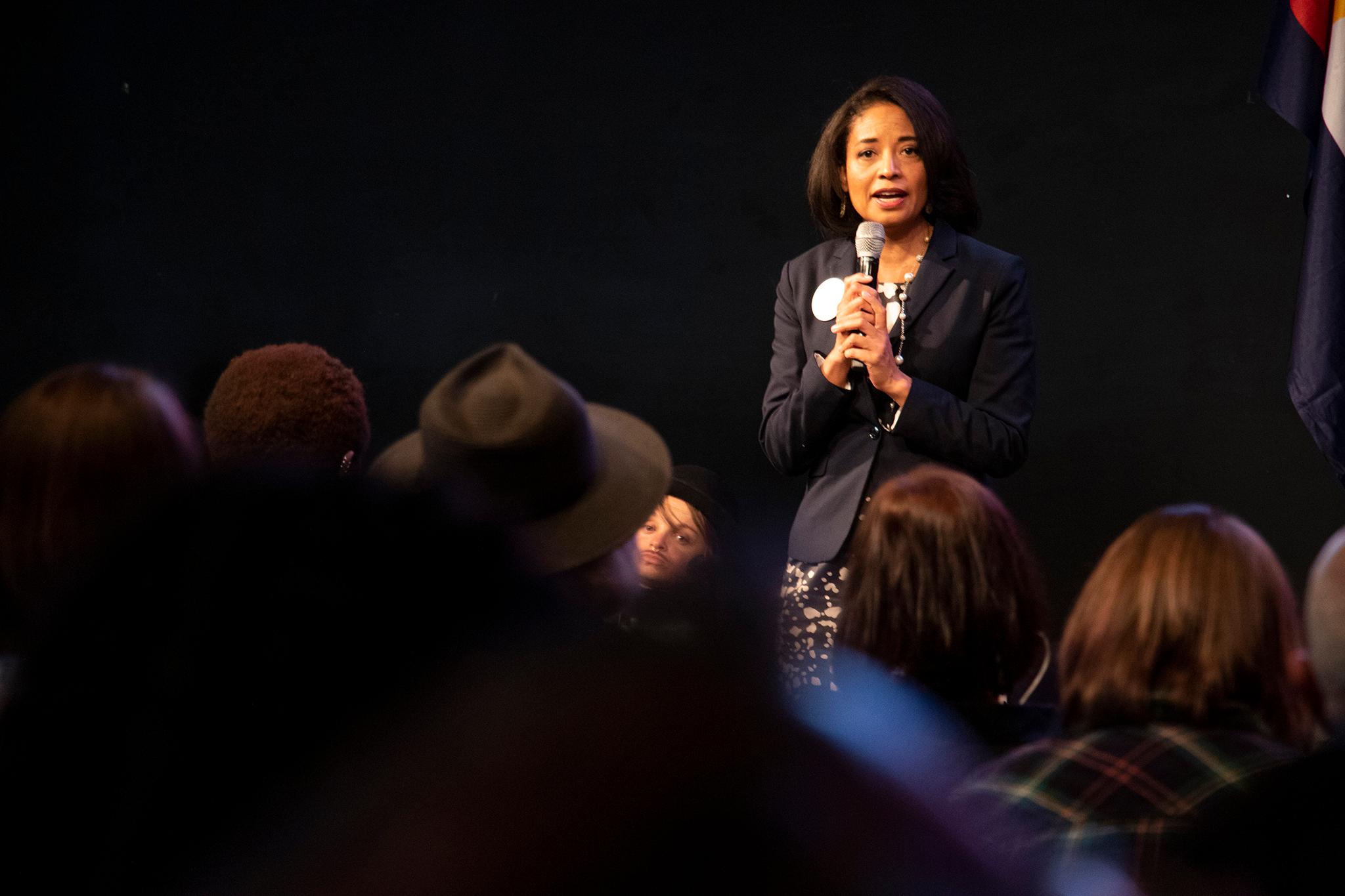
She also talked about her 12 years as legal director at Boulder Safehouse, which helps victims of domestic violence, and where Calderón worked with the justice system to ensure people in same-sex relationships were treated fairly.
Calderón rebuked Giellis for conveying her support of the Beloved Tiny Home Village, which houses formerly homeless people as part of a "housing first" solution to the homelessness epidemic. Denver Homeless Out Loud led the advocacy that created the village.
"When people put their lives and bodies on the line, it's important that politicians not take credit for their work," Calderón said. "So I'm an ally, I don't co-opt."
The next mayoral debate is Wednesday at Kunsmiller Creative Arts Academy at 7 p.m.

